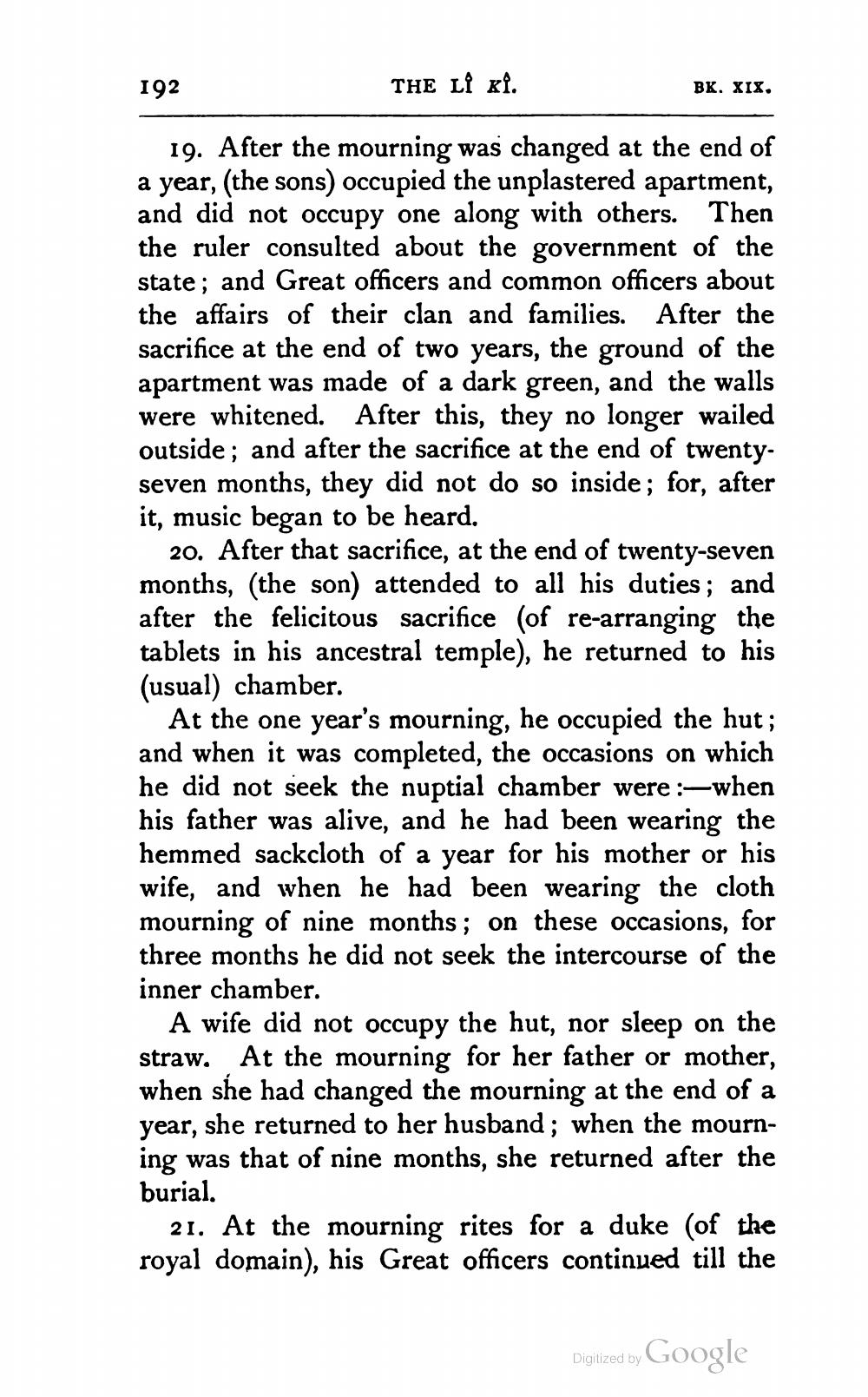________________
THE Lİ Kİ.
19. After the mourning was changed at the end of a year, (the sons) occupied the unplastered apartment, and did not occupy one along with others. Then the ruler consulted about the government of the state; and Great officers and common officers about the affairs of their clan and families. After the sacrifice at the end of two years, the ground of the apartment was made of a dark green, and the walls were whitened. After this, they no longer wailed outside; and after the sacrifice at the end of twentyseven months, they did not do so inside; for, after it, music began to be heard.
192
BK. XIX.
20. After that sacrifice, at the end of twenty-seven months, (the son) attended to all his duties; and after the felicitous sacrifice (of re-arranging the tablets in his ancestral temple), he returned to his (usual) chamber.
At the one year's mourning, he occupied the hut; and when it was completed, the occasions on which he did not seek the nuptial chamber were:-when his father was alive, and he had been wearing the hemmed sackcloth of a year for his mother or his wife, and when he had been wearing the cloth mourning of nine months; on these occasions, for three months he did not seek the intercourse of the inner chamber.
A wife did not occupy the hut, nor sleep on the straw. At the mourning for her father or mother, when she had changed the mourning at the end of a year, she returned to her husband; when the mourning was that of nine months, she returned after the burial.
21. At the mourning rites for a duke (of the royal domain), his Great officers continued till the
Digitized by
Google




